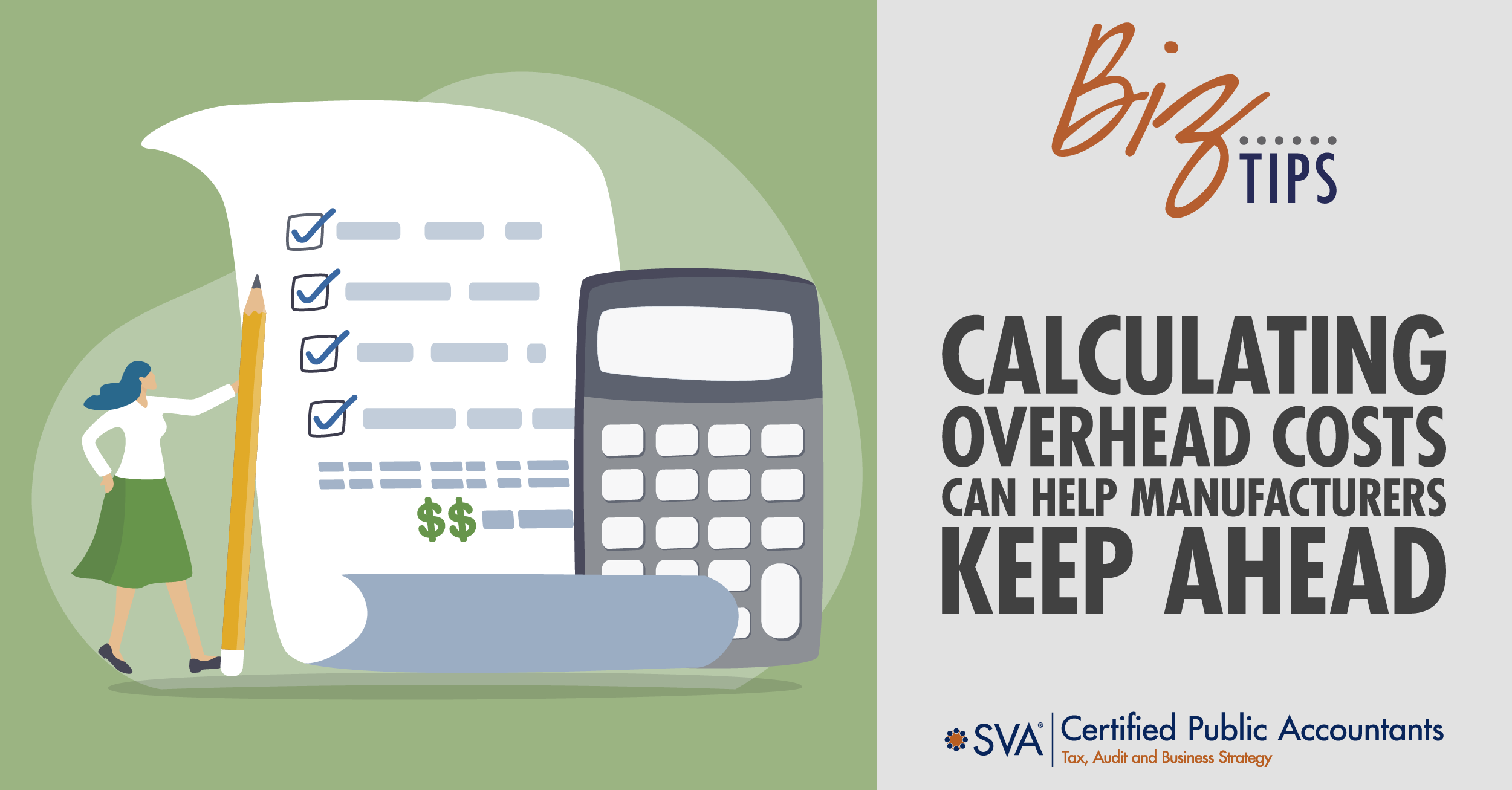| Highlights: |
- Explains the importance of calculating manufacturing overhead costs to set accurate pricing and avoid profit loss from mispriced products.
- Defines overhead cost categories (fixed, variable, semi-variable) and outlines steps to identify, categorize, and total indirect expenses for manufacturers.
- Describes how to compute overhead rates and per-unit cost, plus the need to review these figures regularly to maintain profitability.
|
Product pricing is a constant battle for many manufacturers. Pricing too high can lead to reduced sales, and too low will lead to reduced or negative profits.
Many costs go into manufacturing products or providing services. Knowing these costs is imperative to figure out a price that works for your customers and your business. An incorrect calculation of overhead costs can have a ripple effect on your product pricing.
What are Overhead Costs?
Manufacturing overhead costs are those costs that are not directly related to production. Direct costs (such as labor and materials used in production) are not part of overhead costs. It can sometimes be referred to as ‘factory overhead'.
There are Three Types of Overhead Costs:
| 1. Fixed |
Fixed costs remain the same month after month. Some examples may include mortgage, rent, property taxes, and required fees. |
| 2. Variable |
These costs can change based on production levels, even though these costs are not involved in actual production. Some examples include utilities (i.e., gas, electric, disposal services). Increased production can also increase shipping, advertising/marketing, and maintenance costs. |
| 3. Semi-Variable |
Costs in this category may change based on how a company performs over time. Some examples include rent or leasing (may be negotiated based on the expansion or reduction of business) and insurance (may need more or less coverage based on the company’s growth.) |
While calculating overhead costs is not too complicated, it does help to use the following steps when doing your calculations.
How to Calculate Manufacturing Overhead
Here are the steps involved in calculating overhead costs for a manufacturing business:
1. Identify All Overhead Costs
The best place to start is by listing all costs associated with your business. A complete list will give you the transparency you need to calculate your overhead costs correctly.
2. Categorize Overhead Costs
Once you have identified all your business costs, it is beneficial to categorize each expense. This will help clarify which costs are overhead or direct in nature.
Identifying direct costs (such as materials, stock, and labor) and removing them from your complete list will leave you with a list of your overhead costs. Some costs can be challenging to classify, and you will have to use your best judgment to organize them.
3. Determine the Annual Overhead Costs
Adding up a whole year’s worth of expenses can be a bit daunting, so make it easier and calculate one month’s worth of expenses first.
Once this is completed, it is a simple task to take this monthly number, multiply it by 12 (12 months in a year), and get your yearly overhead cost total.
(Download Video Transcript)
4. Calculate Overhead Rate
How much does your company spend on making a product or providing services? One way to find this out is by calculating the overhead rate.
This can be done by dividing your indirect costs (i.e., overhead) by the direct costs (i.e., materials, labor, etc.) and multiplying by 100 to get a percentage. This percentage will tell you how much of a company’s revenue is spent on manufacturing a product or providing a service.
5. Calculate Overhead Cost Per Unit
When determining a price for a product or service, you will want to know your direct costs, but don’t forget to factor in indirect costs. Creating prices based solely on direct expenses will most likely create negative profits as the indirect costs are not being accounted for.
Divide the total overhead costs for each product by the number of units produced.
For example, if the total overhead costs for a product are $100,000 and 10,000 units of the product are produced, the overhead cost per unit would be $100,000/10,000 = $10 per unit. Now add direct costs per product, and you get your actual cost for a product or service, which should be used to determine the price.
Review Overhead Costs Regularly
It is essential to regularly review and update the calculation of overhead costs to ensure that it remains accurate and reflects any changes in the business, such as changes in rent, utilities, and other variable costs.
If profits are not where you want them to be, don’t forget to look at overhead costs and direct costs when looking for areas to improve. Unanswered problems in overhead costs can have a negative effect on profits just as easily as direct cost issues can.
If you have questions about overhead costs and how to calculate or identify them, get in touch with one of our accounting professionals today.
© 2023 SVA Certified Public Accountants

